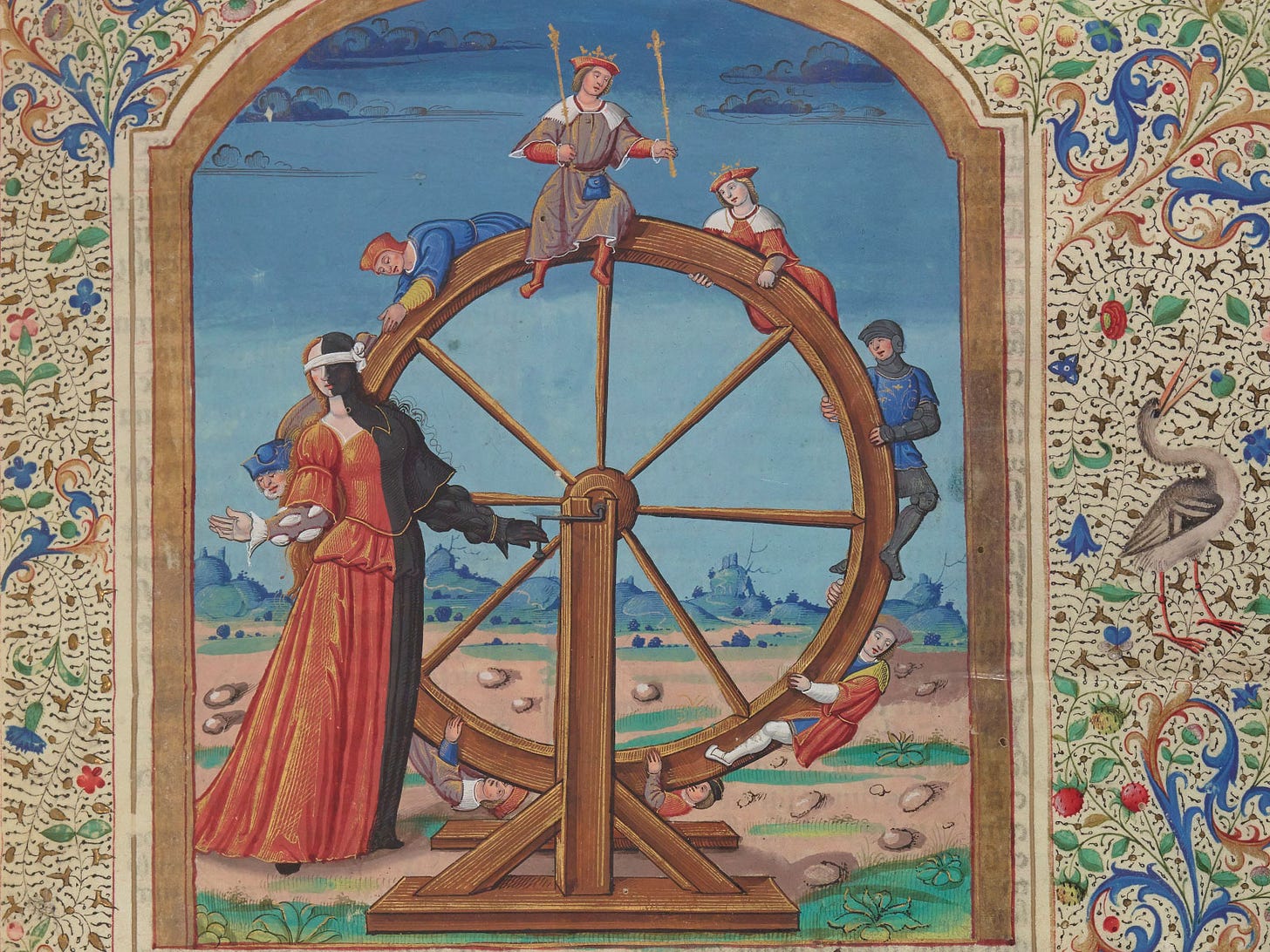I’m working on a mini-series about the sources of Dante’s cosmology and worldview for my next few releases. In the meantime, I thought I’d share this essay I wrote for a graduate course comparing Dante’s view on destiny with that of his fellow Florentine, Niccolò Machiavelli.
What I find interesting in this juxtaposition is that it reveals the break between the medieval and modern worldviews (or what was then just becoming modernity). Some may disagree with me but I see the two views as discontinuous, inasmuch as the medieval perspective maintained a divine, transcendent order at work in the world in contrast to the modern view, which, while not immediately rejecting divine reality, chose to see human affairs in a largely immanent causal frame. Let me know what you think!
Dante Alighieri and Niccolò Machiavelli were Florentine intellectuals living during periods of tremendous political and social upheaval. Born two centuries apart, they each achieved political success early in their careers, after which both fell spectacularly from public favor—experiences which arguably shaped their views of history and fate. In the aftermath of their political disgrace, each man penned his most famous work: the epic religious poem, The Divine Comedy, for Dante, and the infamous treatise on statecraft, The Prince, for Machiavelli.
At the heart of these reflections is the perennial question of human freedom versus “Fortune.” How does Fortune influence human affairs, and to what extent can individuals shape their destiny amidst forces beyond their control? While both writers acknowledge the influence of chance and agency in history, their perspectives diverge on at least one significant point: the teleology of their historical subject. This distinction becomes clearer when considered through the lens of Augustine’s metaphor of the “two cities” from City of God.
Dante, whose poem reveals man’s ultimate purpose as seeking admission to the “heavenly city” interprets Fortune as an instrument of divine Providence, a benevolent agent in God’s design for man’s salvation. Machiavelli by contrast, writing within a purely immanent frame, casts Fortune as a force to be outwitted: an irrational and capricious adversary that must be subdued for man to achieve his ambitions in the “earthly city”. This difference reveals the contrasting teleological horizons that shape Dante and Machiavelli’s interpretations of history, fate, and freedom.
The study of historical causation raises essential questions about the balance of free will versus determinism in shaping historical events. It grapples with the degree to which historical events unfold in time due to human choices or forces beyond human control. As discernible patterns appearing in the remembered past, historical causes are thought to enable historians to predict the behavior of future events.
Broadly understood, history vacillates between the poles of fate and freedom, or necessity and contingency, reflecting a tension between human agency and the influence of material or spiritual factors, such as geography, politics, divine will, or astrological influence.1 In Dante’s world, divine providence governs history, guiding Fortune to accomplish divine will. Machiavelli takes a more skeptical stance, favoring human initiative against Fortune’s caprices.
Dante Alighieri: Fortune as Divine Minister
Keep reading with a 7-day free trial
Subscribe to The Occidental Tourist to keep reading this post and get 7 days of free access to the full post archives.



